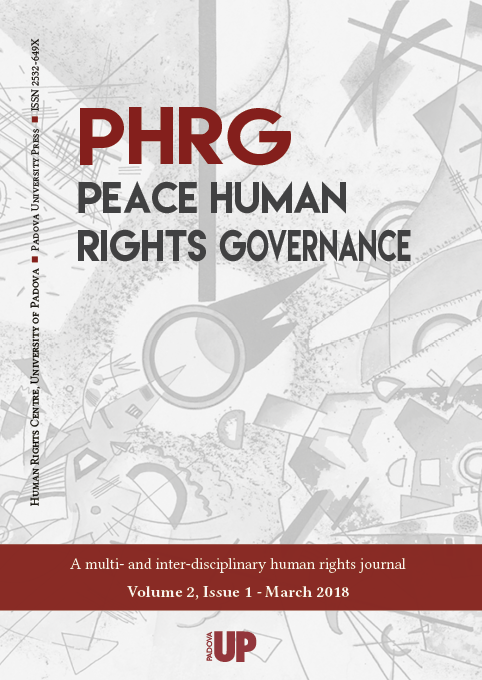Raccolte

Effective Participation of Minorities in Public Affairs in the Local Government: Towards a Subsidiarity in Diversity Accommodation? The Case of Law No. 6/2008 of the Province of Trento
- Sito internet
- Peace Human Rights Governance 2(1)
- Tipologia pubblicazione
- Articolo / Saggio
- Pagine
- 97-117
- Lingua
- EN
Effective participation in political affairs has an essential position within minority rights. International documents recommend the guarantee of it at every political level. However, the local government is often neglected in practice and academic debates regarding minority governance. The present paper aims to explore the role of the local government as an appropriate political space for the implementation of good practices in order to maximise the enforcement of minority rights. This aim will be pursued through the analysis of law n. 6/2008 of the Province of Trento, which deals with the promotion of local historical linguistic minorities, as an example of implementation of international standards of effective participation within the local government through non-electoral institutional mechanisms. As a preliminary step, the legal framework of the analysis will be presented with attention to hard and soft law documents relevant in setting international and European (CoE – OSCE) standards. Thereafter, effective participation will be defined, highlighting its multi-level nature. In the second part of the paper, law n. 6/2008 will be analysed. Emphasis will be placed on the institutional framework designed by the law for ensuring the involvement of historical minorities in the decision-making processes in three different dimensions.

